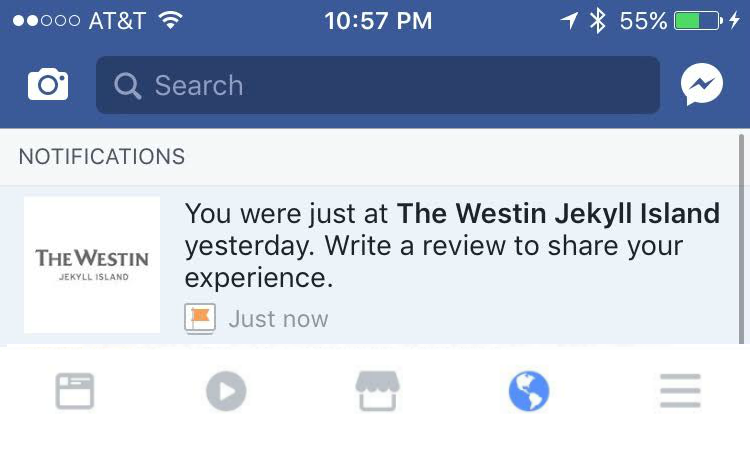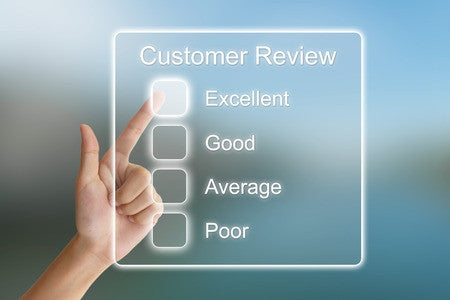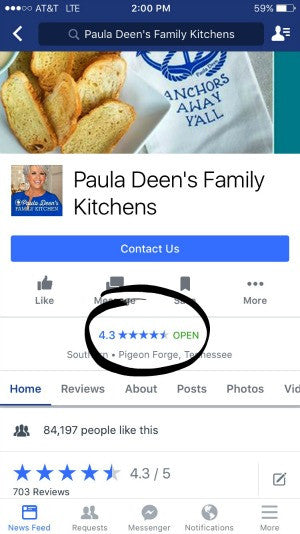How to improve your brand and increase engagement
There's a very good reason that companies include testimonial pages on their websites. Did you know that research from YouGov has shown that 78 percent of Americans look at reviews before making a purchase, and 88 percent find reviews about as trustworthy as personal recommendations from their inner circle of friends and family? Those online reviews are powerful …which is why it's too bad that more businesses don't know how to use them properly.
The testimonial page is just one tool that should be in your online review toolbox. Let's talk about how to manage a broader, more effective review strategy by tapping into the social market.
Your industry and your reviews
While social channels are a popular breeding ground for reviews, it's a good idea to start by examining which channels you should focus on. Begin by asking yourself: Where do my potential customers go for reviews? Which channels will have the most impact when it comes to posting reviews? Relevancy is different for everyone, but here are a few points to keep in mind:
- Yelp is a powerful retail/restaurant review tool, but interest is starting to fade due to overuse and concerns about spamming, poor reviews, etc. For now, Yelp is still necessary for many industries, but expect it to be supplanted in coming years.
- Google business profiles and Facebook are still requirements for nearly every industry. These are high-profile channels that directly impact both customers and your SEO. When in doubt, focus efforts here because these channels tend to have the most impact, even in B2B fields.
- Be specific. Many industries have specific sites to garner reviews – think of Zagat for restaurants or Vitals for health care. Search for review sites unique to your industry and target them.
- Use metrics. Examine your traffic: Where does it come from? What ads have the best conversion rates? This should point to social sites where you need to focus efforts.
A call to action for reviews
Once you know which social media channels you need to pursue – what’s next? A good review strategy requires effective calls to action. There are several places to put these calls to action. A solution that works for many companies is creating a landing page specifically for reviews, using simple forms that allow customers to quickly file a review. After a transaction, emails and links can point customers toward these landing pages with a simple request for a positive review about their experiences. Brick-and-mortar transactions can do the same with a little message on the receipt or an add-on to receipt emails.
Another powerful tool, especially for targeting specific networks, is a set of share buttons to allow customers to instantly share their reviews or visit the business profile where they can provide star reviews and messages for a particular social media site.
You should also consider incentives, especially when it comes to larger clients. Offering deals and discounts in exchange for reviews is common in many business circles; so don't feel bad about including rewards.
Using reviews when you have them
Positive reviews are starting to roll in thanks to your well-placed calls to action. Now, what do you do with them? It's smart to separate them into four different categories:
- Testimonials to share through website and email.
These are longer, more detailed positive reviews that are great for sharing in the right formats.
- Short reviews to share on social media.
These reviews are shorter and have excellent blurbs, ideal for posting on social media with a link to the review and a note about happy customers.
- Reviews that deserve a response.
These are reviews that raise important questions or comments that you should answer.
- Reviews you can ignore.
These reviews are far from useless and they contribute to overall review scores, but there's nothing much you can do with them, so don't waste energy on them.
Creating conversation
Finally, let's talk a little about poor reviews. Studies have shown that 4 out of 5 consumers back off from purchase decisions if they run across a negative online review. Here's what to do in response: answer poor reviews when possible. It doesn't matter if the review is unfair or doesn't make sense, post a reply, comment or apology. You aren't doing this for the poor review itself (although any toxic customer that you can convert is a win); you are doing this for new customers who are checking out reviews. If they see you are explaining or at least answering the negative reviews, they will be much less likely to let those reviews affect them!
Obviously, a successful review strategy requires a significant investment of time and labor (and it's probably not something you want to leave to interns). If you currently don't have the time to spare, consider using review management software to manage customer feedback and encourage positive customer reviews. ReviewMaxer is an affordable way to effectively manage your company’s reviews and online reputation – and it is extremely easy to use. Sign up for a free demo to see how this cloud-based software can save you time and promote your company online.
Photo credit: 123RF Stock Photo
Written by: Nick Rojas







